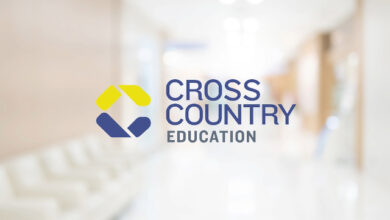Education for Tomorrow: Skills Needed in the 21st Century

In the fast-paced and ever-evolving landscape of the 21st century, the traditional paradigms of education are undergoing a profound transformation. As societies become more interconnected, industries become increasingly digital, and global challenges grow more complex, the skills required to thrive in this era have shifted dramatically. This article explores the critical skills that form the foundation of education for tomorrow, empowering individuals to navigate and excel in the challenges and opportunities of the modern world.
Critical Thinking and Problem Solving: The Core of Education for Tomorrow
Critical thinking and problem-solving skills are the linchpins of education for tomorrow. In a world inundated with information, individuals must be able to analyze, evaluate, and synthesize complex ideas to arrive at innovative solutions. Encouraging students to question assumptions, consider multiple perspectives, and approach challenges with a creative mindset equips them to tackle real-world problems effectively.
Digital Literacy: Navigating the Digital Landscape
Education for tomorrow must prioritize digital literacy, enabling individuals to navigate the digital landscape with confidence. From using basic software to understanding data analytics, the ability to harness technology is no longer a luxury but a necessity. Digital literacy empowers learners to communicate effectively, discern credible information from misinformation, and leverage technological tools to achieve their goals.
Adaptability and Resilience: Thriving in Uncertainty
The 21st century is characterized by rapid change and uncertainty. Education for tomorrow equips individuals with adaptability and resilience, allowing them to embrace change, learn from failures, and bounce back from setbacks. These skills foster a growth mindset that encourages continuous learning and self-improvement.
Collaboration and Communication: Bridging Boundaries
In a globalized world, collaboration and effective communication are imperative. Education for tomorrow emphasizes the ability to work collaboratively across cultures and disciplines. Students learn to communicate their ideas clearly, listen actively, and collaborate seamlessly in both virtual and physical environments.
Creativity and Innovation: Driving Progress
Creativity and innovation are the engines of progress in the 21st century. Education for tomorrow fosters environments where students can experiment, explore diverse perspectives, and generate novel ideas. Encouraging creative thinking empowers individuals to propose groundbreaking solutions to complex challenges.
Emotional Intelligence: Navigating Human Connections
In an age of technological advancement, emotional intelligence remains a cornerstone of education for tomorrow. Understanding one’s emotions, empathizing with others, and developing interpersonal skills are crucial for building meaningful relationships and effective teamwork.
Global Awareness and Cultural Competency: Embracing Diversity
Globalization has brought diverse cultures and perspectives closer together. Education for tomorrow emphasizes the importance of global awareness and cultural competency. Students learn to appreciate different viewpoints, respect cultural differences, and collaborate harmoniously with people from around the world.
Entrepreneurial Mindset: Seizing Opportunities
An entrepreneurial mindset is not limited to starting businesses; it’s about approaching challenges with a proactive attitude, identifying opportunities, and taking calculated risks. Education for tomorrow nurtures this mindset, enabling individuals to innovate, identify gaps, and seize opportunities for growth.
Environmental Literacy: Addressing Sustainability Challenges
In an era of environmental concerns, education for tomorrow incorporates environmental literacy. Individuals learn about sustainability, ecological systems, and the impact of human activities on the planet. This knowledge equips them to make informed decisions and contribute to a sustainable future.
Lifelong Learning: The Journey Continues
Education for tomorrow recognizes that learning doesn’t end with formal schooling. It instills a passion for lifelong learning, encouraging individuals to stay curious, explore new subjects, and adapt to evolving industries and technologies.
Key Dimensions of Education for Tomorrow: Preparing Learners for a Dynamic Future
- Hybrid Learning Models: Education for tomorrow acknowledges the blend of traditional classroom settings with online learning platforms. This hybrid approach caters to diverse learning styles and offers flexibility, catering to both students and professionals seeking continuous education.
- Ethical Digital Citizenship: With the increasing digital footprint, education for tomorrow emphasizes ethical behavior in the digital realm. This includes responsible use of technology, understanding online privacy, and combating issues like cyberbullying and misinformation.
- Data Literacy: As data-driven decision-making becomes crucial across industries, education for tomorrow includes data literacy. Individuals learn to gather, analyze, and interpret data, enabling them to make informed choices and contribute to evidence-based solutions.
- Interdisciplinary Learning: Breaking down subject silos, education for tomorrow encourages interdisciplinary learning. By integrating knowledge from various disciplines, individuals can approach problems from diverse angles, fostering holistic understanding.
- Soft Skills and Leadership: Beyond technical skills, education for tomorrow places significant emphasis on soft skills like leadership, teamwork, and effective communication. These skills enhance an individual’s ability to collaborate, manage teams, and navigate workplace dynamics.
- Civic Engagement and Social Responsibility: Education for tomorrow extends beyond personal growth to encompass civic engagement and social responsibility. Individuals are encouraged to understand societal challenges, engage in community initiatives, and contribute to positive change.
- Personalized Learning Paths: Recognizing that individuals have unique strengths and interests, education for tomorrow promotes personalized learning paths. Adaptive learning technologies tailor content to individual needs, ensuring optimized learning experiences.
- Global Connectivity: The digital age has made the world more interconnected. Education for tomorrow leverages this connectivity to facilitate global collaborations, exposing individuals to diverse perspectives and enabling cross-cultural exchanges.
- Experiential Learning: Education for tomorrow integrates experiential learning, allowing individuals to apply theoretical knowledge in real-world contexts. Internships, projects, and simulations provide practical experiences that bridge the gap between academia and industry.
Conclusion
In conclusion, education for tomorrow is a dynamic approach that equips individuals with the essential skills needed to navigate the challenges and opportunities of the 21st century. From critical thinking and digital literacy to adaptability and cultural competency, these skills empower individuals to excel, innovate, and contribute meaningfully to an interconnected and rapidly changing world.





